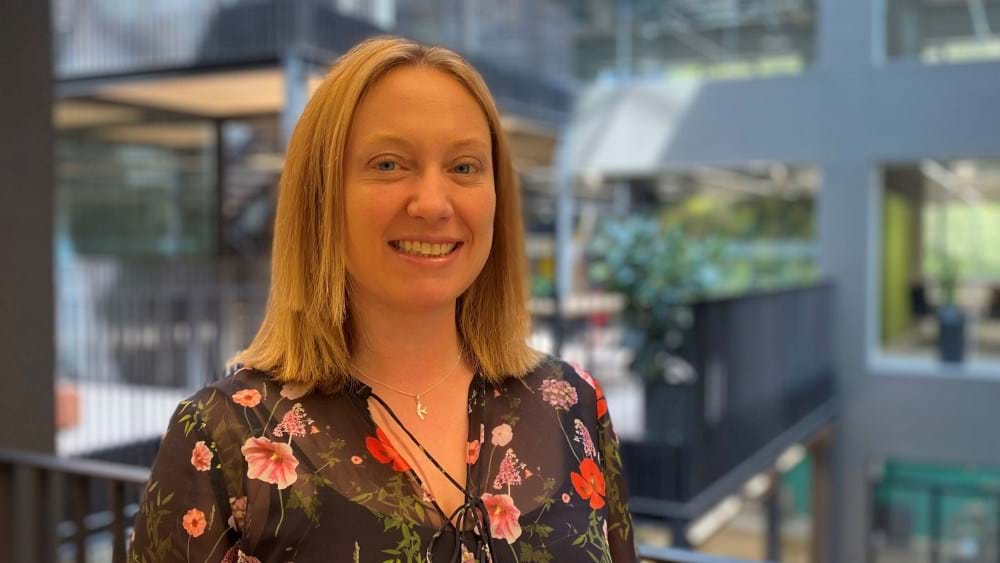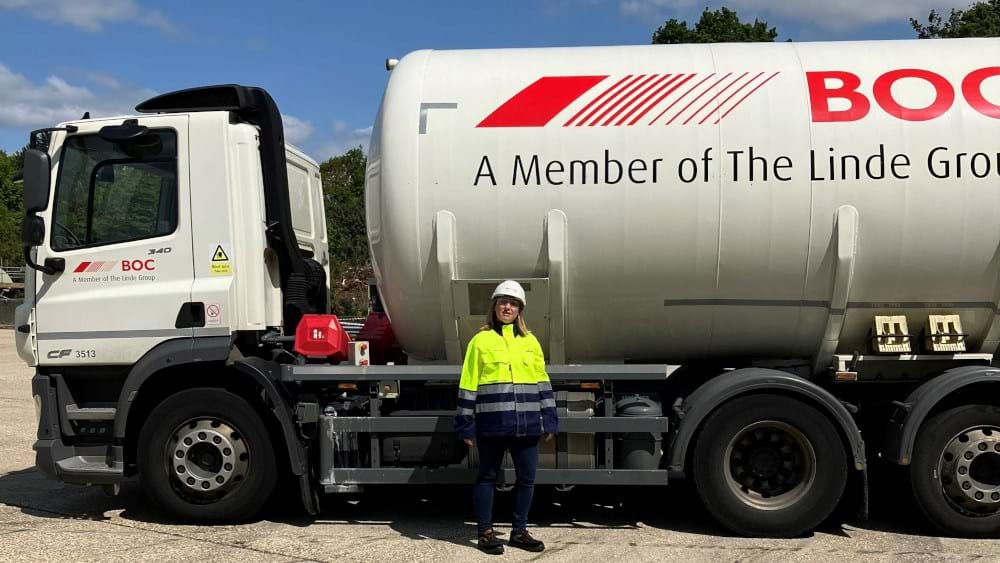Careers in Chemical Engineering: Safely Delivering Industrial Gases

MY NAME is Yasmin Ali and I’m a chemical engineer working in the energy sector. I was originally attracted to study chemical engineering because of the breadth of career opportunities it provides. To showcase this diversity, I will be talking to a range of fellow chemical engineers to find out what they do, how they got there, and why they do it.
To celebrate International Women in Engineering Day (INWED) 2023, I spoke to Caroline Smither, process safety team leader for BOC UK & Ireland.
Chatting to Caroline Smither at a hydrogen conference earlier this year was a lucky coincidence given that the theme for this year's INWED is ‘Make Safety Seen’. As a process safety team leader at BOC, an industrial gases firm owned by Linde, Caroline has a team of nine people who complete all process safety reviews and assessments for 30 or so sites across UK and Ireland, including six hydrogen production sites.
BOC makes and distributes a wide range of industrial gases that span medical grade oxygen, carbon dioxide for beer and fizzy drinks, to hydrogen for decarbonising industry and transport. The production and distribution methods vary from cryogenic distillation to pipelines and tube trailers.
“We would do HAZOP, QRA work, LOPAs – all the normal stuff you would expect a process safety team to do, but we do it for existing operational sites,” Caroline told me. Alongside managing the team, Caroline is also the technical authority for multiple areas, responsible for the technical content of reports. Another part of her job is interpreting technical process safety documents, and communicating the content to senior leaders in a more accessible way.
The rest of Caroline’s time is filled with “really fun stuff” including revamping the graduate scheme, chairing the forum of mentors who help graduates in the company achieve chartership, and anything to do with developing young engineers.
Choosing chemical engineering
As a youngster herself, Caroline decided to study chemical engineering after a conversation with her chemistry teacher, despite her father’s reservations.
“He worked for British Steel for many years...It was not always the nicest environment for females. I don’t think he wanted his daughter going into it.”
Despite his initial resistance, Caroline’s father later became incredibly supportive of her career.
In 2003, after studying at the University of Nottingham, Caroline joined Air Products – another industrial gas company. She worked on a hydrogen production project all the way through from the early bid phase, through front end engineering design to construction. Working as a systems engineer and drawing P&IDs was another highlight from Caroline’s early career.
“I’d start with a process flow diagram from the process engineer, then I’d spend six months just drawing. I absolutely loved it, piecing it together like a massive puzzle,” she said.
“I was able to go see the puzzle that I had drawn with all the contributions from all the different engineers and people contributing to it, through the construction phase and then to actually climb around it and check it was all right.”
Energy from supporting operations

For about eight years while caring for a young family – Caroline has two children – she worked in more office-based design roles in oil and gas. While this fit with her life at the time, she found supporting operations more interesting and eventually went back into this.
“It’s one thing to be designing something hypothetically on a piece of paper that might be built into something later, but when you have someone ringing you up saying I have a problem with this can you help me, that’s where I get a lot of energy out of my job.”
Juggling two young children with work has become easier since Covid-19 and the wider acceptance of flexible working. Caroline and her husband can now spend more time with the kids attending assemblies, or picking them up from school a few days a week. Any remaining spare time is spent at the gym or running.
Looking ahead, Caroline doesn’t have any immediate plans for the future “What I am now was my future plan!” she told me, now taking time to reset and think ahead. “I really enjoy my role right now, I am happy to see what opportunities it brings in the future.”
Partly driven by her early career experience, Caroline loves hydrogen, which she thinks will play an increasingly significant role in the rest of her career. While she doesn’t think hydrogen is the answer to all our problems, she does believe it will be part of the future energy mix. As such, wider industry and society will need support to safely incorporate this fuel.
“As we transition to using hydrogen in ways we haven’t before we need to make sure that safety remains at the forefront of our minds. We have to do things right first time so we get the buy in from members of the public and expand the uses of hydrogen quickly to support the efforts to achieve net zero.”
For more articles in this series, visit: Yasmin Ali: Careers in Chemical Engineering
And visit here for more articles on International Women in Engineering Day
Recent Editions
Catch up on the latest news, views and jobs from The Chemical Engineer. Below are the four latest issues. View a wider selection of the archive from within the Magazine section of this site.




